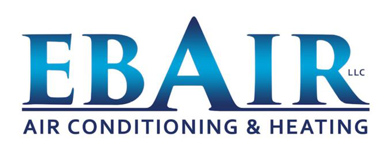
Have you ever performed a double take when you viewed your last energy bill? While high energy bills can be the consequence of intense weather events, consistently high bills can also suggest an inefficient HVAC system or your home is wasting energy by other means, including drafty windows or poor insulation.
One of the simplest ways to determine whether your home is wasting energy is by calling a home service expert to carry out a home energy audit, also referred to as a home energy assessment. Keep reading to learn more about home energy audits, including what they are and their advantages.
What Is a Home Energy Audit?
An energy audit is a thorough inspection of how much energy your home uses up and whether – and where – your home may be losing or wasting energy. An inspector will review past energy bills while completing an energy audit to find out where energy is being consumed and how much.
The overall goal of an energy audit is to help homeowners save money on their energy bills by identifying energy-efficient renovations, which might include replacing your existing HVAC system, putting in new insulation, plugging up leaks, or replacing loose windows.
During the energy assessment, the auditor also completes an inspection of the outside and inside of your home. The auditor completes a blower door test on doorways, windows and fireplaces to determine if there are air leaks in your home. They’ll also evaluate your home’s HVAC system, which also includes the ductwork, the water heater, and the insulation in your attic. Some assessments may also include reviewing your current lighting system.
Benefits of a Home Energy Audit
It can be hard for the typical homeowner to know for sure how efficient their home is compared to other similar homes in their area. However, lots of energy companies often provide information about where your home is ranked in comparison to similar homes and whether it’s more efficient, about average, or inefficient versus your neighbors’ homes. This can be a great starting point to decide if you need an energy audit completed.
Some of the benefits of a home energy audit include:
Recognizing How Efficient Your Home Is
It’s worthwhile to understand how efficient your home is and where you’re consuming the most energy. For example, if your ducts are leaking air, it will lead to a large increase in your energy bills and additional wear and tear on your HVAC system as it has to stay on longer to properly heat or cool your home.
Making Energy-Efficient Updates
An energy audit will reveal where you need to make energy-efficient upgrades to save on energy and lower utility bills. This can include replacing worn-down weatherstripping or installing a new energy-efficient furnace.
Enhancing Health and Safety
Permitting air to seep into your home through doors and windows, or due to a lack of insulation can cause extra moisture to appear, which can negatively impact your home’s humidity levels or lead to mold. This can lead to health issues, particularly for people dealing with asthma or allergies.
Raising Your Home’s Retail Value
Energy-efficient homes are desired by homebuyers. You can sell your home much faster or for more money by telling possible buyers that it’s energy efficient.
How to Perform an Energy Audit of Your Home
Although performing an energy audit on your own might not be as detailed as hiring a professional, it’ll offer you a broad sense of how energy efficient your home is. If you don’t discover any flaws during the DIY test, then you probably don’t need to call in a professional. Use this step-by-step checklist:
- Inspect your HVAC system. Leaky ducts can lose up to 20% of conditioned air, contributing to steeper energy bills and greater wear and tear on HVAC equipment. If you discover leaks, use duct tape to seal them. If your HVAC equipment is old and inefficient, upgrading to a new system can save you a significant amount on your energy bills. In some cases, it can be better to contact a reputable HVAC company to inspect your system.
- Look for air leaks. Air leaks on average can raise the energy bills by 10 to 20%. Inside, look for air leaks in areas where there is a draft, like along the edge of flooring and close to baseboards and electrical outlets. Outside, you can inspect for air leaks along the home’s foundation, siding and mortar. Plug, caulk or seal any air leaks to save money.
- Inspect insulation. If your home is older, it could mean your insulation is too. If you can see the joists, you likely need more insulation.
- Check ventilation. Check that all of your kitchen and bathroom exhaust fans are functioning properly, and check for evidence of rot or moisture.
Contact E.B. Air for a Professional Energy Audit
If you would like professional help finding out how energy efficient your heating and cooling equipment is, contact the HVAC professionals at E.B. Air today. We’ve proudly supported the residents of East Bernard with quality home services for years. Contact us today to schedule an appointment.
